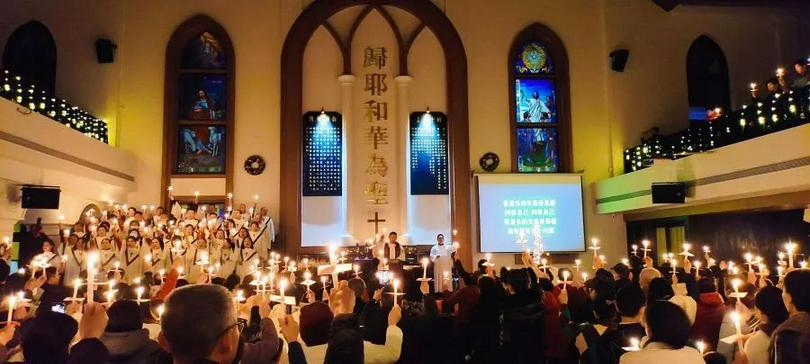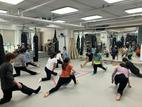Christmas is one of the most important festivals in global churches, and it is especially so in China. Compared with Easter, Christmas is obviously more atmospheric and receives more attention in China.
From around 2000 to 2018, most Chinese churches celebrated Christmas in a similarly ritualistic or ceremonial way. The nationwide grand status and style of a church celebration of the festival had been pretty similar to that of the annual Chinese “Spring Festival Gala.” Every believer used to gather in a church building or a rented venue to watch “programs," which contained worship and praise, short plays or acts, singings and dances, and so on. The whole celebration ceremony would last from two to four hours. The event thus designed had generally two purposes. First, it was meant to be a spiritual family reunion or fellowship for all participating believers. Second, it served as an evangelical occasion for many invited seekers, who might be family members, relatives, or friends of the believers.
However, in recent years, due to deep reflections that some churches had on the problems of Christmas celebrations and the trends of dividing churches into small groups caused by the pandemic and venue issues, the “Spring Festival Gala” style has been declining. Yet, more diversified ways to celebrate Christmas have emerged quickly. The trend is particularly obvious in 2023.
Brother Yang is the leader of Church A in a city in South China. The church has a membership of hundreds, most of whom are professionals. He said that in 2023, he took the initiative to propose a new way to do it with the pastoral staff in his church and stopped doing Christmas celebrations. First of all, it is very costly for believers to get together annually because it includes their commitment, time, and donations. “Usually past Christmas preparations started in September.” He revealed that the preparations included program arranging and casting, repeated rehearsals, and all sorts of overall planning. Moreover, the pandemic experience had largely raised people’s awareness that gathering required tremendous measures to ensure the safety of the multitude. A great deal of energy and manpower were needed. In his view, the Christmas party should not overemphasize evangelization, which should be done the whole year round, and not rely on that occasion alone.
Therefore, in his opinion, “the past Christmas celebration was actually a kind of self-satisfaction," which demanded much manpower, material resources, and commitment but also had a low evangelical effect. It should be better to allow believers to have a good Christmas in a new way. Therefore, he proposed to turn this year into an open family celebration; the church called out families who were willing to host and then arranged groups of less than 10 people to do their own favorite programs and parties in these families. For instance, some groups liked to have dinner, then they could have. Some preferred comic talks, so they could rehearse them among themselves. Meanwhile, the church only provided backup help in mainly two aspects: basic funds of 500–1,000 yuan for catering and other necessary items.
All the pastoral staff of the church said that this change was good, and the congregation supported it.
Pastor Li works at Church B in a southern town. In the past few years, his church has chosen to reduce assembly gatherings and adopted the cell groups’ model. As a result, this caused a problem that believers in different groups or areas could rarely meet, especially in the past three years of the pandemic. Furthermore, there may even be cases where some believers have never known each other. “So, we all want to get together to see each other’s faces,” Pastor Li said.
They consequently adopted a model similar to a “wedding banquet," which contained more than a dozen tables in a local hotel. On Christmas Eve, believers in the church ate together and exchanged gifts and blessings. The church also prepared daily necessities as gifts for participants, and many group leaders and fellow workers were also very happy to wrap the gifts together.
The situation in Church C, where Brother Caleb is located, is somewhat similar. In the past few years, there have been very few services. They basically had separate meetings. At Christmas, the three gathering points met, and relatives and friends were invited to attend. In addition, seekers who were about to be baptized were arranged as witnesses.
Located in a first-tier city in East China, Church D has a large number of professionals. Its Christmas celebrations were divided into two sessions: considering the busyness of professionals, the service on Christmas Eve morning was held and all the members came, giving gifts to each other after worship. Church E, which is also in the same city, held two sessions: the morning Sunday service and the afternoon Christmas party. The Christmas party was also mainly held for believers and families, with invited believers from different gathering points.
Some small churches in mid-China just held small celebrations, and congregations had dinner and exchanged presents. In the north, some Christians celebrated Christmas with comic talks, which is a popular art among the local people.
In addition to these methods, many Christians adopted the fellowship mode of “chatting,” dinner, and thanksgiving testimonies.
In addition to these diversified attempts, there were still many churches that chose the familiar “Spring Festival Gala” style. Many churches in the first-tier cities in South China had two Christmas activities on Christmas Eve and Christmas, and churches in some cities in East China had launched Christmas worship on these two nights and asked participants to book through the official WeChat account in advance to be arranged.
- Translated by Charlie Li












